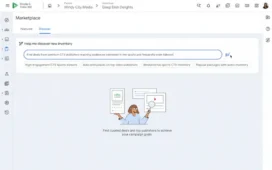A key element of Meta’s metaverse and VR push will be incorporating VR experiences into everyday life, and showcasing the value of these immersive digital environments.
One way of doing that is through education, and providing schools with VR tools that will then help to both enhance educational capacity, and expose broad audiences to Meta’s evolving VR tools. And this week, Meta’s announced the next stage in its VR education push, via a new Meta for Education beta program, which will see the company partnering with universities in the U.S. and U.K. to test its new educational experiences for Quest devices ahead of a broader educational push.
As explained by Meta:
“Over a dozen Universities – including Imperial College London; the University of Glasgow and the University of Leeds – will ensure regular touchpoints with educators who are trialing VR and XR prototypes and programs in their own classrooms, and enable us to improve our products ahead of an official launch. The beta test will give university partners early access to a range of apps and features that bring students closer to otherwise expensive or out of reach educational experiences.”
The longer-term view is that Meta’s VR units will eventually provide utility to many more educational institutions, helping to provide more practical, physical experiences to enhance learning.
In addition to this, Meta’s also working with VictoryXR to develop the first digital “metaversities” in Europe.
“Through these metaversities, educators and students at the University of Leeds in the U.K., University of the Basque Country in Spain, and University of Hannover in Germany will be able to explore, socialize, and participate in live classes remotely – all within an immersive environment that mirrors their physical campuses.”
These schools will also begin using VR technologies in certain courses, with the University of the Basque Country incorporating Meta’s technology into its Physiotherapy and Anatomy training.
This is a long-running, and long-term push for Meta, with the company initially launching a pilot program for VR in education with 15 U.S. universities back in 2023. Earlier this year, Meta also launched a new training program to help educators make use of VR within the classroom, and the hope is that, through increased utility, more schools will adopt more VR learning experiences, which will then help to generate more interest in Meta’s next-level push.
Both VR and AR devices are already in use in several professional sectors, with Google’s failed consumer product Google Glass finding a new lease of life in industrial applications. But education will bring these technologies to a much broader audience, which will then, ideally, prompt more students to use VR in their everyday life as well, leading into the metaverse shift.
Which is still coming. Meta probably went a bit early on its metaverse-aligned re-brand a couple of years back, but the trends do point to people eventually interacting in increasingly immersive digital environments, as the technology improves, and accessibility becomes more universal.
Right now, there’s not a heap of reason to buy a VR headset, but as more applications arise, and more people engage in VR worlds, the value of those experiences will increase.
And the more that Meta can raise awareness of this, the better. And really, there’s no better way to get the next generation of consumers on board than via practical demonstrations in the classroom, which they have to participate in and experience.
It’s a smart play for Meta, and it’ll continue to keep building on these educational partnerships to power the next stage.















